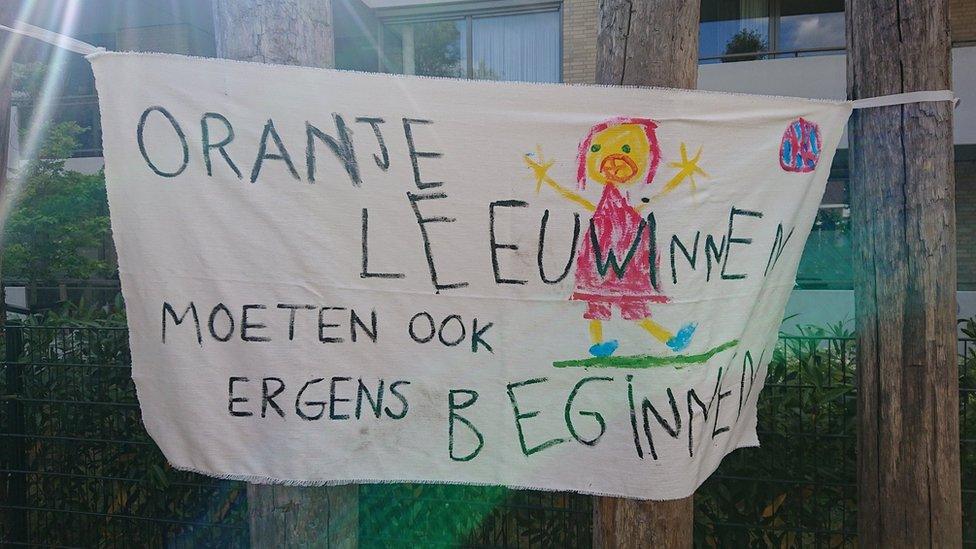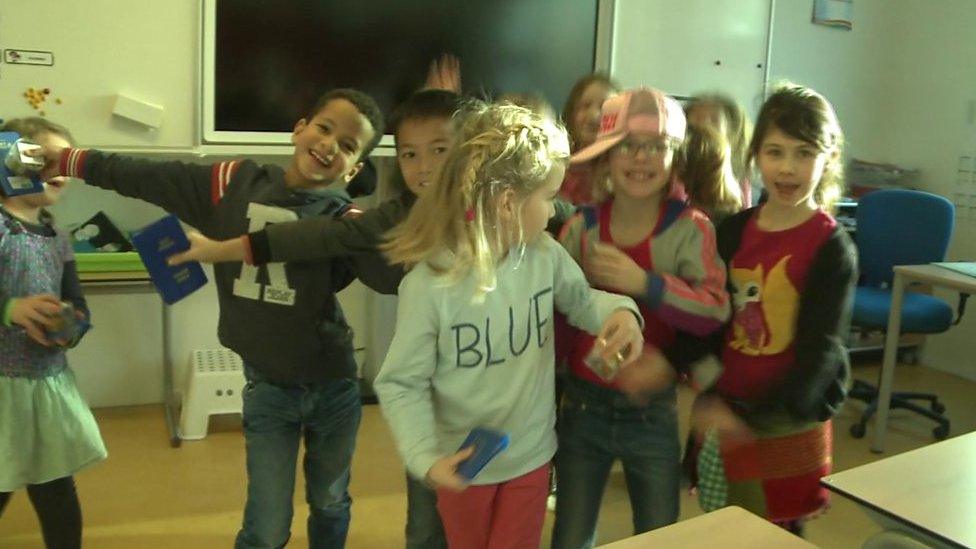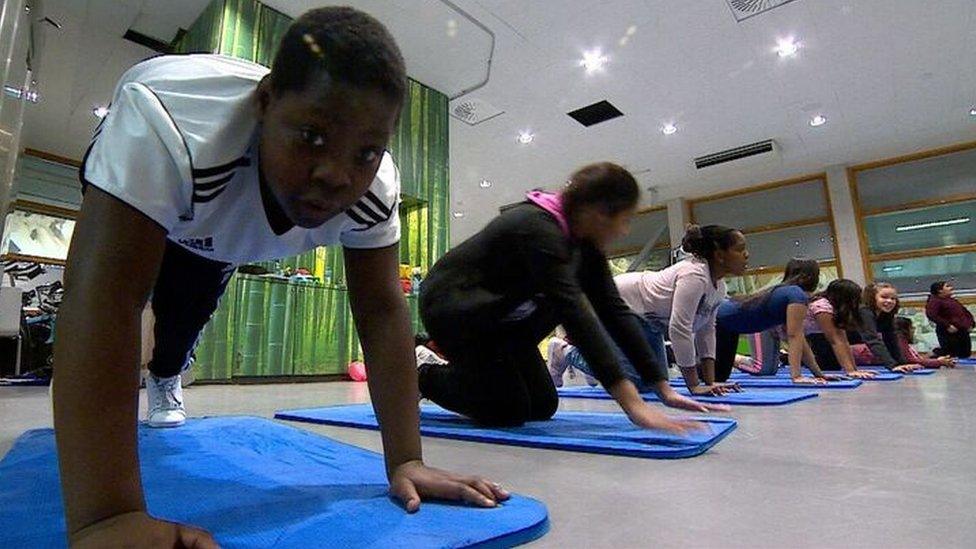Noisy Dutch children banned from playground
- Published

Banners have been pinned up around the playground in support of the school children
A primary school playground in the Netherlands has been ordered to close due to its children being too noisy.
De Buut primary school in Nijmegen has been given until the end of the month to ban pupils from the field or face a €10,000 (£9,000) fine.
Local residents complained that the children were exceeding a 70-decibel limit on residential areas.
Officials commissioned a noise measurement, which put their noise level at 88 decibels.
The decision has faced a backlash, with more than 4,000 people signing a petition calling on the council overturn the decision to close the 40-year-old playground.
"It's a bizarre situation, and it is absolutely unfair to the children," Janneke Colsen, the director of the primary school, told the de Volkskrant newspaper.
"Especially now we're constantly being told that children have to go outside and exercise more."
Repeated efforts to appease local residents - including moving music lessons inside - had already been made, Ms Colsen added.
Why are Dutch children the happiest in the world?
Banners have been pinned around the playground, including one that reads: "Orange Lionesses must also start somewhere", in reference to the Dutch women's football team who were runners up in the recent World Cup.
Rudmer Heerema, an MP for the centre-right VVD, raised the proposed ban with the Dutch education minister in parliament.
"You go to live next to a sports field where children enjoy sports and exercise and then you file a complaint against noise ... A solution must be found for this. Children must be able to exercise and move," he tweeted.
However, Noël Vergunst, a local Green councillor, has defended the decision.
"It's a difficult issue," he told councillors last week. "The noise standard was considerably exceeded, so we had to do something," he added.
Dutch children consistently rank among the happiest in the world, according to surveys by the UN children's fund Unicef.
Reasons behind this include less academic pressure in tests at an early age and an emphasis on play-based learning.
- Published24 January 2017

- Published2 April 2018
